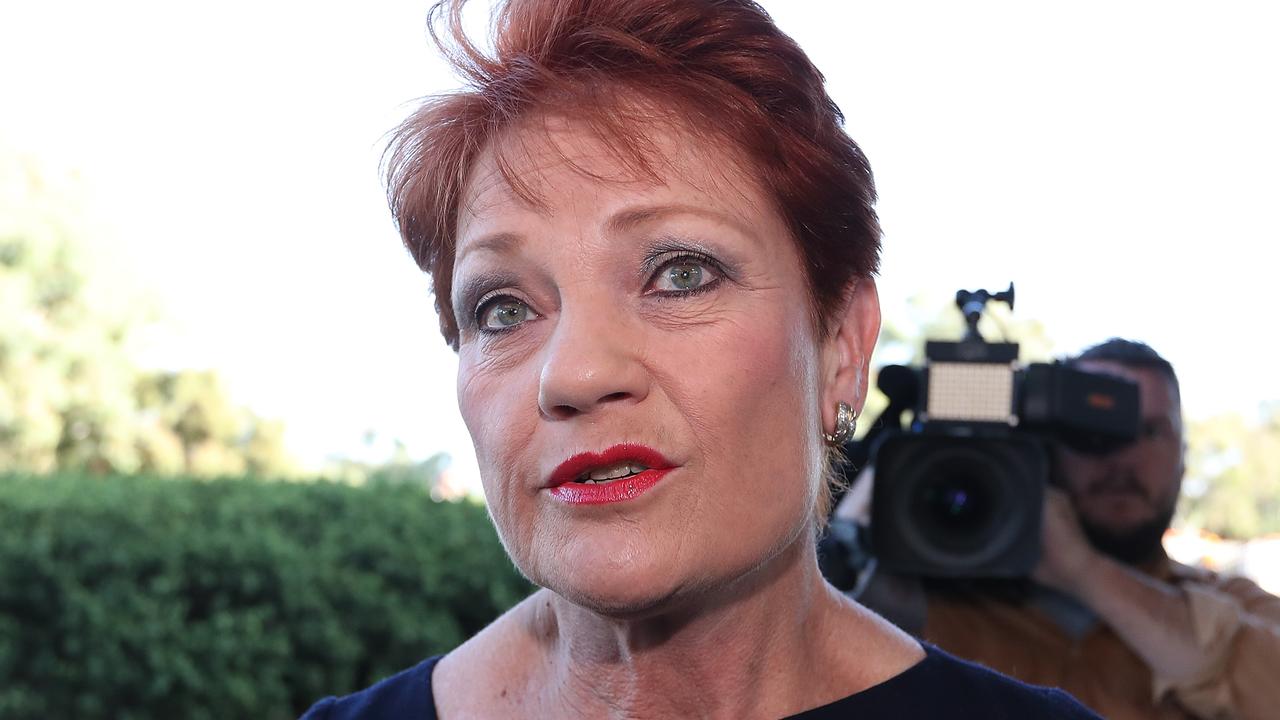Labor tipped to adopt boat turnbacks in immigration policy
The government says Bill Shorten needs to spell out Labor’s position after Joel Fitzgibbon said he wanted turnbacks considered.

Immigration Minister Peter Dutton has demanded Opposition Leader Bill Shorten clear up confusion over Labor’s position on turning back asylum seeker boats.
Mr Dutton said Mr Shorten must spell out his party’s stance after Labor’s Joel Fitzgibbon revealed he wanted it considered as an option to stop boats heading to Australia.
“Personally, I can’t see there is an overwhelming argument that ‘turnbacks’ isn’t an important part of the tool kit,” Mr Fitzgibbon told Sky News today.
Other Labor frontbenchers opposed the policy, Mr Dutton said, and Mr Shorten should explain why his shadow ministers were “all over the place” on boats.
“Mr Shorten needs to come out and explain what it is the Labor Party is going to take ... to the next election,” Mr Dutton told reporters in Canberra.
But the immigration minister also believes Mr Shorten’s promises will not be implemented if Labor is returned to government at the next election.
The government’s policy is to turn people smuggling vessels around when it is safe to do so.
Greens Leader Richard Di Natale said Australia was shirking its global and regional responsibilities. “This is a global problem, no country in the world is doing what we are doing,” he told Sky News
Ahead of a fierce Labor National Conference debate on boat turnbacks, Mr Fitzgibbon said turnbacks of asylum-seeker boats should be adopted as Labor’s election policy, claiming shadow cabinet is in “universal” agreement that the flow of asylum-seekers to Australia must cease.
Mr Fitzgibbon expected turnbacks would be adopted as “part of a broader package” to reduce irregular immigration and drownings at sea.
Kevin Rudd took a policy of turnbacks to the 2007 election, but said he dropped the idea after the Australian Defence Force advised it could not be done unless Indonesia was willing to accept the vessels.
Interviewed on Sky News’s Australian Agenda, Mr Fitzgibbon said: “We won’t be doing anything which will cause more people to take that risky boat ride.
“Now, I don’t want to pre-empt the National Conference debate — that would be arrogant of me — but personally I believe a turnback policy will be part of a broader package.
“There’s a powerful argument that you need a whole range of tools to ensure the flows don’t begin again, including the policies Labor inherited to Tony Abbott. Now one of those tools currently is boat turnbacks.
“Personally I can’t see that there’s an overwhelming argument that turnbacks isn’t an important part of the toolkit and I think there’s a universal commitment to ensuring that those flows don’t begin again, and I know that’s certainly universal within the shadow cabinet and — again I don’t want to pre-empt debate — but I think in the end people will come to the conclusion that it has to be a broad kit.”
“More particularly I’d like to see the Abbott government just start caring about people and we should spend … as much time talking about the sources of the problem (of irregular migration) rather than how to fix the problem after the event.”
Labor’s position on turnbacks has been unclear, with Coalition ministers accusing the opposition of being captive to its “loony left” fringe.
Richard Marles, the opposition’s immigration spokesman, said last October said he was “open-minded” on turnbacks but they had to be safe and not erode Australia’s relationship with Indonesia.
“We have no doubt at all about the impact of the turnback policy,’’ Mr Marles told Australian Agenda at the time.
“It has had an impact and, let me be clear about it, it has to be said in combination with the regional resettlement arrangement which Labor put in place.’’
Mr Shorten subsequently ruled out adopting turnbacks, telling Labor MPs: “The case has not been made out for change.”
“And furthermore when we look at what has effectively helped discourage the people smugglers the origin of the success of this measure is in Labor’s regional resettlement negotiations and regional processing,” he told caucus at the time.
Mr Fitzgibbon said maritime asylum flows had dropped by 90 per cent after the Rudd government announced its regional resettlement deal with Papua New Guinea ahead of the 2013 election.
In March, Labor deputy leader Tanya Plibersek affirmed she and her colleagues “certainly have been opposed to turnbacks”.
“It has affected our relationship with Indonesia in the past. It has not been good for it,” she told Australian Agenda at the time.



To join the conversation, please log in. Don't have an account? Register
Join the conversation, you are commenting as Logout